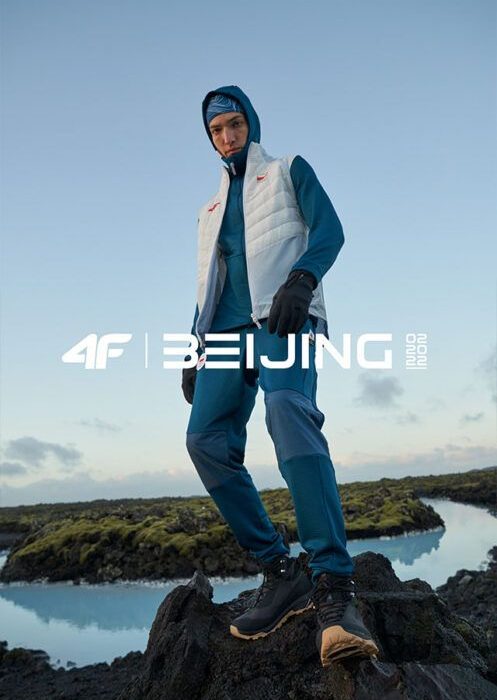4F launches Wear_fair zones in stores. In the plans are ubraniomats and sportswear rental
Circular circulation of clothes is one of the main assumptions of the 4F Change project. The initiative of OTCF (the owner of 4F and Outhorn) is carried out in partnership with "Ubrania do oddania" (Clothes to Donate), a company that collects unwanted clothes from Polish households and circulates them into the second clothing cycle.
The unquestionable influence of the fashion and textile industry on the natural environment prompted OTCF, the owner of the 4F brand, to take the initiative #4FChange. The goal is to reduce the negative impact of the brand on the environment by introducing circular circulation of clothes and promoting proper attitudes on the part of both consumers and business.
– Clothes that we stop wearing have a huge potential, so we decided to use it to the benefit of the brand's clients and the planet. We want to get these clothes back into circulation. By giving second-hand garments a second life, it will free up space in closets and contribute to reducing the need for new textiles, thus reducing the environmental impact of the clothing industry – says Przemek Feliga, ESG Project Manager, OTCF.
Basis of the project
It is the introduction of second-hand sportswear into 4F stores that lies at the heart of the innovative 4F – Change project carried out together with "Clothes to donate". The project is the first step on the way to a great goal, which is for 4F to apply the principles of closed-loop economy on a wider scale.
– Cooperation in 4F Change project is for us a confirmation of what we have been talking about for four years. It can be said that dreams come true, as second-hand clothes are finally coming to the forefront of the clothing sector. Clothing industry has to change, with small – big steps start turning towards the most responsible and sustainable fashion – second-hand fashion, that is the one which has already been produced. We're excited to be making history together, and our experience combined with our determination to change the 4F brand, has allowed second hand fashion to enter the showrooms and put it on par with first run fashion. This is the beginning of a revolution, the strategy of which has been written for the next three years – says Zosia Zochniak, the founder of "Ubrania do Oddania".
Stores with Wear_fair zones
The first stage of 4F Change is to launch Wear_fair zone with second-hand clothes in 4F store in Arkadia Shopping Centre and in 4F stores in Bielsko-Biała (Sfera), Gdańsk (Forum Radunia), Katowice (Katowicka), Cracow (Bonarka and Serenada), Łódź (Łódzka), Rzeszów (Galeria Rzeszów) and Warsaw (Galeria Młociny, Galeria Północna).
– We look to the future and see our brand as an active participant and initiator of change on the market. Our initiative stems from our concern for the environment and ecology, which is not just a temporary trend, but a constant and developed element of operating in a responsible business. We want to make all our customers interested in it and show that each of us can contribute to reducing the negative impact of man on the environment. We are already planning the next elements of our project, such as regular organized clothing collections, completely innovative clothes on the market, and even a sportswear rental – continues Feliga.
The 4F Change project was launched during a meeting that took place on January 19 at the 4F brand's flagship store in Warsaw's Arkadia shopping center.
– This is a pioneering project not only in Poland but also in Europe, so we have no doubt that together with 4F we are starting a new era of development for the fashion industry. We want to be the leader of change on the market and show that consistent building of second-hand values is possible. We feel great satisfaction that with this change we can change it from the inside – comments Anna Pięta, Strategic Partnership Manager, who runs the "Clothes to Give Back" project.
Varsovians can donate their clothes
As part of the project, 4F conducted an educational campaign, during which the residents of Warsaw were provided with special cardboard boxes, which they could use to donate their clothes. The boxes are located in six of the most popular places in Warsaw, such as Plac Konstytucji, Rondo Daszyńskiego or Metro Wierzbno. This is a step to make Warsaw inhabitants aware of how easy it can be to take part in the action and start a new habit of managing unnecessary clothes in a rational and systemic way.
